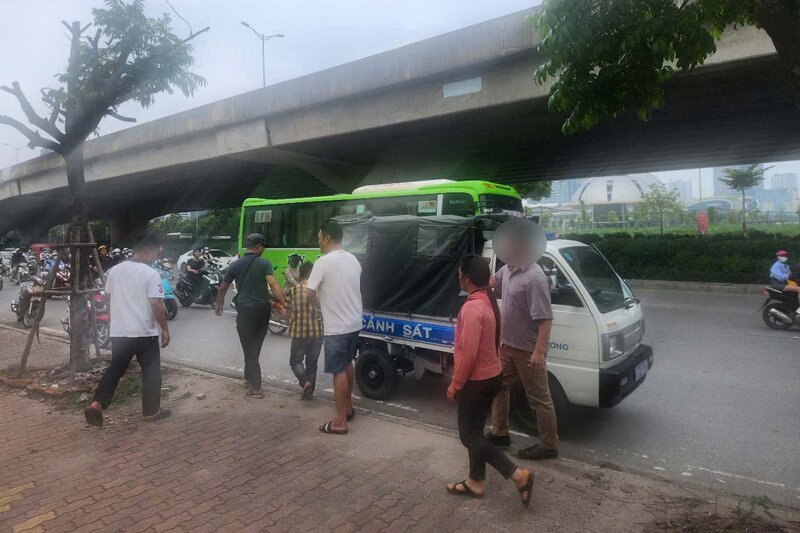Police investigate the case of a taxi "ripping off" 4.9 million VND for two speeders
On June 16, My Dinh 2 Ward Police (Nam Tu Liem District, Hanoi) confirmed that they had summoned a taxi driver related to the "ripped off" complaint of Mr. Giang Ho (25 years old, Mong ethnic group, Muong Khuong district, Lao Cai) and the thief.
Previously, on June 13, two children from the National Children's Hospital took a motorbike taxi to My Dinh Bus Station to return home. At the gate of the station, they were approached by a strange man, claiming to be an employee of Truc Nghiu bus company, informing them that the car had run away, then instructing them to switch to a motorbike taxi to chase. After that, they were instructed to switch to a taxi.

Results: 700,000 VND for motorbike taxis, 4.2 million VND for taxis - a total of 4.9 million VND for a journey of less than 30 km. Mr. Ho even had to borrow money from relatives in his hometown to pay the driver.
Luckily, a kind driver then let them go to the highway to catch a bus back to Lao Cai. The story was posted on social networks and spread quickly, causing public outrage.
From a legal perspective, Lawyer Hoang Van Ha - Director of ARC Hanoi Law Firm - said that this is not only an act that deserves condemnation of professional ethics, but can also constitute a criminal crime. This behavior can constitute a crime of extortion under Article 170 of the 2015 Penal Code.
"Just a threatening act or mental intimidation is required to force another person to hand over the property, and the amount of 4 million VND or more is enough to constitute a crime. This is no longer a normal administrative violation but an act with clear signs of criminality, emphasized lawyer Ha.
If the investigation process clarifies the factors of organizing, assigning roles or performing acts multiple times, the violator may face a more severe penalty. In case of impersonating a bus company, providing false information to appropriate property, they can also be prosecuted for fraud to appropriate property under Article 174 of the Penal Code.
Loose management: Taxis are "slow" but people are lucky enough
The incident is not simply the transformation of an individual, but also clearly shows loopholes in monitoring small-scale passenger transport activities. Especially for contract vehicles with less than 9 seats - a group of vehicles that are not required to wear badges or taxi rankings, leading to it being very difficult for people to distinguish legal vehicles from "broken" taxis.

At many bus stations and hospitals - where many people from other provinces gather, especially ethnic minorities, the lack of infrastructure to pick up and drop off passengers and support human resources has created space for the subjects to take advantage. The current administrative penalty for the act of "ripping off" customers is also considered too light, not enough to deter" Lawyer Hoang Van Ha commented.
Faced with the situation of "even" taxis, spontaneous motorbike taxis and repeated "ripping off" cases, many legal experts believe that it is time to synchronously deploy systematic management solutions instead of just handling cases by case.
One of the outstanding proposals is to attach a mandatory QR code for all passenger transport vehicles with direct payment. This not only helps passengers look up vehicle information, fare and history of operation, but also creates a transparent control tool for the authorities.
Along with that, experts propose strict penalties right from the first violation, including temporary detention of vehicles, withdrawal of badges or temporary driving licenses, instead of just warning or administrative sanctions as at present.
Regarding infrastructure, it is necessary to reorganize the pick-up and drop-off system, especially at hot spots such as bus stations and hospitals. Integrating surveillance with cameras and AI technology will help detect and promptly prevent violations.










